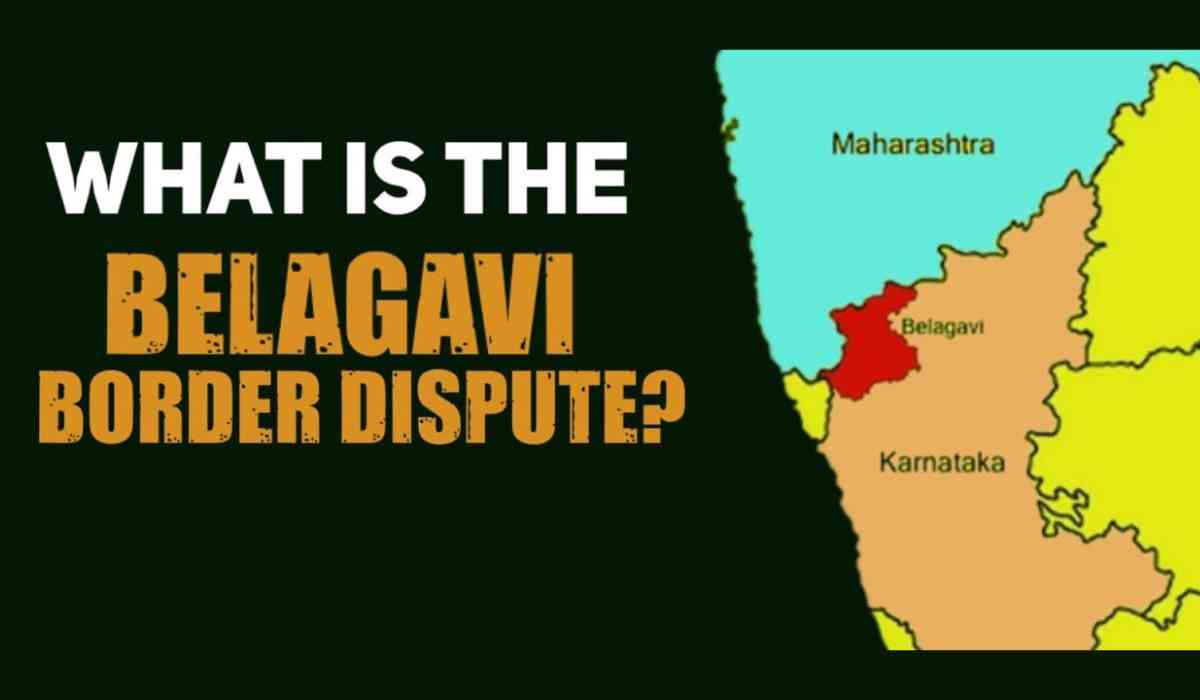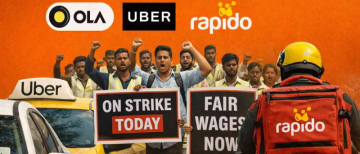The long-standing border dispute between Karnataka and Maharashtra has been reignited following recent violent incidents involving bus conductors from both states. The violence, fueled by linguistic tensions, has led to significant disruptions, including the suspension of interstate bus services and growing hostilities between the two states.
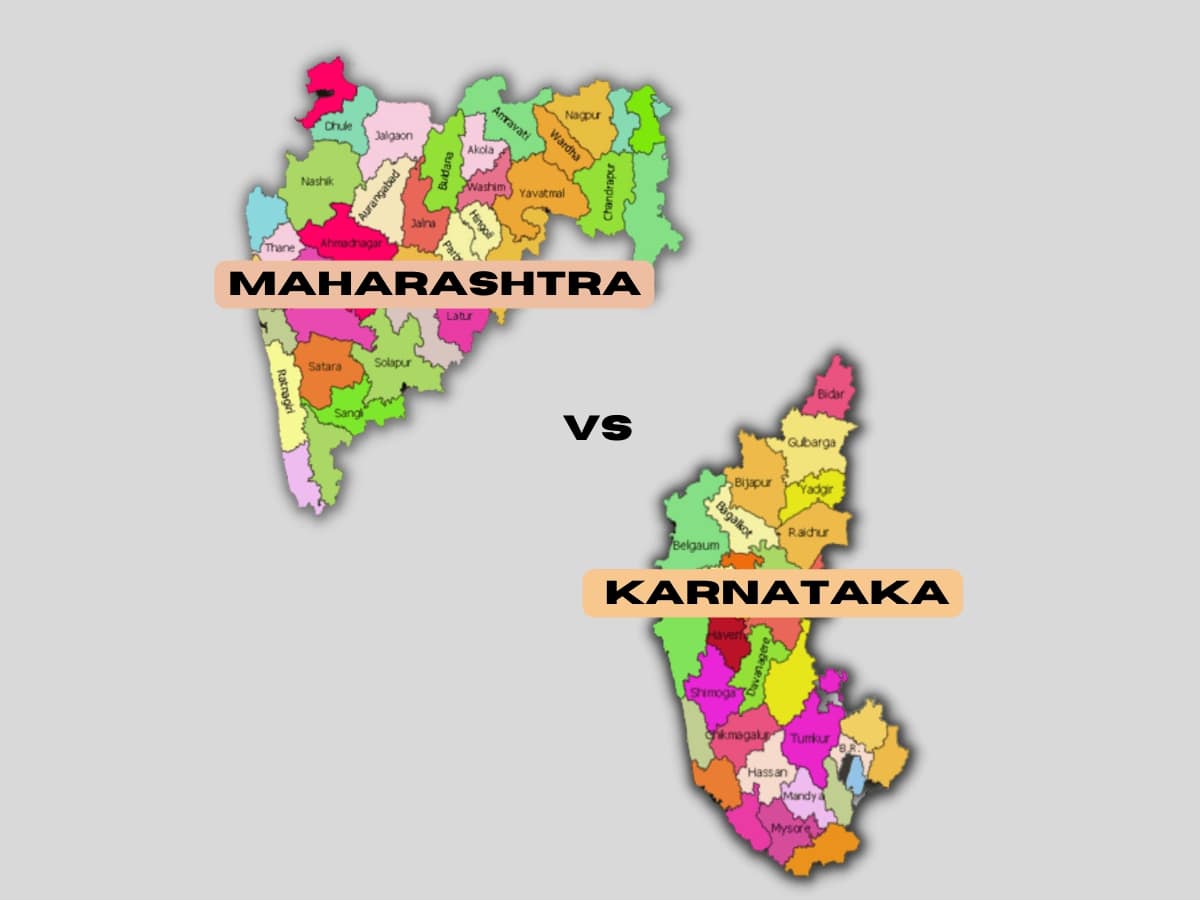
Triggering Incident: The Assaults on Bus Conductors and Drivers
Incident in Belagavi
The latest flare-up of tensions occurred on Friday in Marihal, a locality in Belagavi district, Karnataka. The Karnataka State Road Transport Corporation (KSRTC) bus conductor was allegedly assaulted by a group of men for failing to respond in Marathi. The conductor, who did not understand Marathi, had asked a passenger to speak in Kannada. This led to the girl and her male companion attacking him. A larger group later joined and physically assaulted the conductor.
-
Police Actions: Four individuals were arrested in connection with the attack.
-
Unexpected Twist: In an unusual turn of events, the conductor was also booked under the Protection of Children from Sexual Offences (POCSO) Act after the girl accused him of “indecent behavior.”
Retaliation in Chitradurga
The following day, retaliatory violence erupted in Chitradurga, Karnataka. A Maharashtra State Road Transport Corporation (MSRTC) bus driver, Bhaskar Jadhav, was attacked by unidentified individuals, who blackened his face with paint and vandalized the bus. The attack occurred in Hiriyur Taluk of Chitradurga district.
-
Police Actions: Several individuals were arrested in connection with the incident.
-
Maharashtra's Response: Maharashtra’s Transport Minister, Pratap Sarnaik, announced a halt to MSRTC bus services to Karnataka in retaliation.
-
Political Reactions: The Shiv Sena (UBT) workers also retaliated by blackening a Karnataka-numbered bus in Pune, Maharashtra. Slogans like “Jai Maharashtra,” “Marathi,” and “Maharashtra Navnirman Sena” were painted on the bus.
Suspension of Bus Services
In the wake of escalating violence:
-
Maharashtra's Action: MSRTC suspended bus services to Karnataka, with transport officials citing safety concerns for passengers and staff.
-
Karnataka's Response: Karnataka also curtailed its bus services to Maharashtra. A senior officer from North West Karnataka Road Transport Corporation (NWKRTC) confirmed the reduction of bus services, saying, “We have limited the number of buses going to Maharashtra for the time being and are taking all precautions to normalize the situation.”
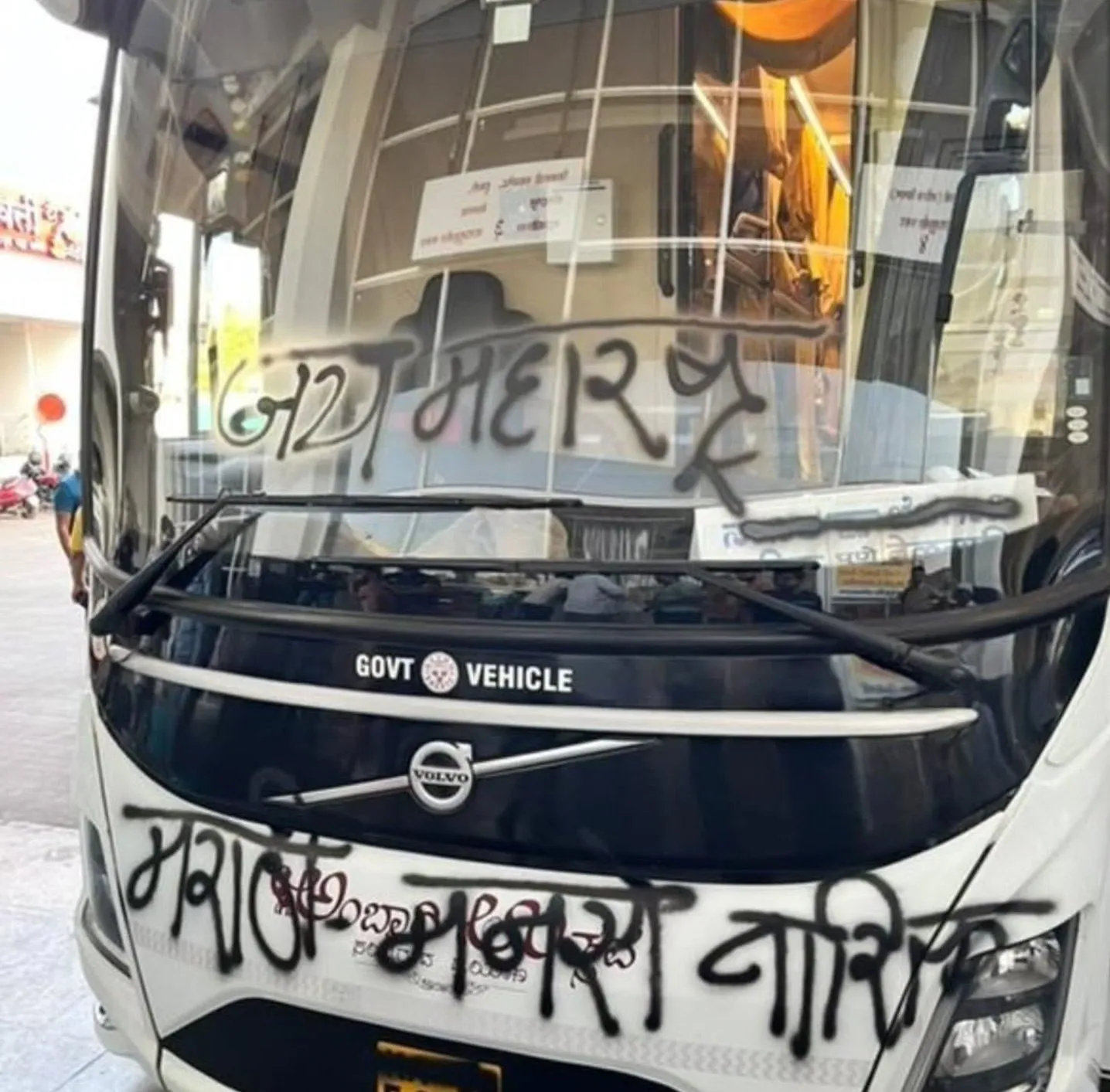
The Historic Border Dispute
Formation of States and the Beginnings of the Dispute
The Karnataka-Maharashtra border dispute dates back to the post-independence reorganization of states in 1956:
-
States Reorganisation Act, 1956: Belagavi (formerly Belgaum) was transferred to Mysore state, which was renamed Karnataka in 1973.
-
Bombay Reorganisation Act, 1960: Maharashtra was formed, and it has since claimed Belagavi and several other villages due to the significant Marathi-speaking population in these areas.
-
Karnataka’s Opposition: Karnataka has continuously rejected Maharashtra's claims over Belagavi, asserting that the district has always been part of Karnataka.
Mahajan Commission: Key Findings and Fallout
To resolve the border dispute, the central government formed the Mahajan Commission in 1966, headed by Chief Justice Mehr Chand Mahajan. The commission's findings, however, were not favorable to Maharashtra:
-
Findings:
-
Belagavi was recommended to remain part of Karnataka.
-
247 villages in Maharashtra were recommended to be part of Karnataka, while 264 villages in Karnataka were recommended to be transferred to Maharashtra.
-
-
Maharashtra’s Response: Maharashtra rejected the recommendations, claiming that the commission had failed to address its concerns, accusing it of favoring Karnataka.
-
Impact: Despite the commission’s decision, the dispute continued to simmer, with Maharashtra taking the matter to the Supreme Court in 2004.
Legal Developments and Continued Dispute
-
Maharashtra’s Supreme Court Petition (2004): Maharashtra filed a petition in the Supreme Court, which is still pending.
-
Centre’s Affidavit (2010): The Centre filed an affidavit in the Supreme Court supporting Karnataka’s position, stating that the decision to assign Belagavi to Karnataka was not arbitrary and that it had been carefully considered.
-
Political Moves:
-
Karnataka: To assert control over Belagavi, Karnataka inaugurated the Suvarna Vidhan Soudha in 2012 and made Belagavi the state’s winter capital.
-
Name Change: In 2014, Karnataka changed the name of Belagavi to “Belagavi” to further cement its claim.
-
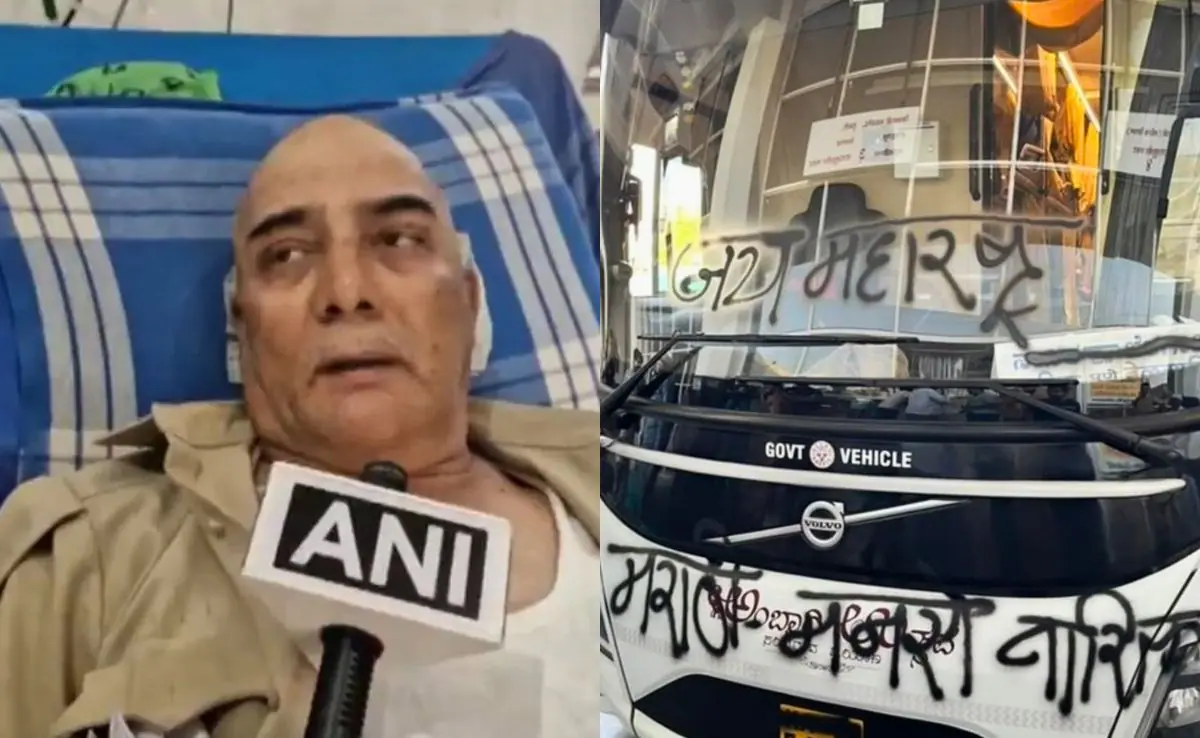
Recent Political Escalations
2022: Renewed Tensions
The issue flared up once again in 2022 when Maharashtra's Chief Minister, Eknath Shinde, announced a review of the status of Marathi-speaking residents in the disputed areas. His government also offered benefits such as freedom fighters' pensions and free medical care to Marathi-speaking residents in the disputed territories.
-
Karnataka's Response: In response, Karnataka’s Chief Minister, Basavraj Bommai, announced grants for Kannada-speaking schools in Maharashtra. This move further heightened tensions between the two states.
-
Maharashtra Assembly Resolution (2022): In December 2022, the Maharashtra Assembly passed a unanimous resolution to continue pursuing legal action for reclaiming the disputed territories.
Ongoing Violence and Disruptions
-
Karnataka’s Suvarna Vidhan Soudha: Karnataka's state legislature holds annual sessions in Belagavi to reinforce its claim over the region.
-
Ongoing Clashes: The border dispute continues to fuel protests, incidents of violence, and politically charged rhetoric from both sides. As both states dig in their heels, the dispute remains a volatile issue that affects not only interstate relations but also the daily lives of people in the affected regions.
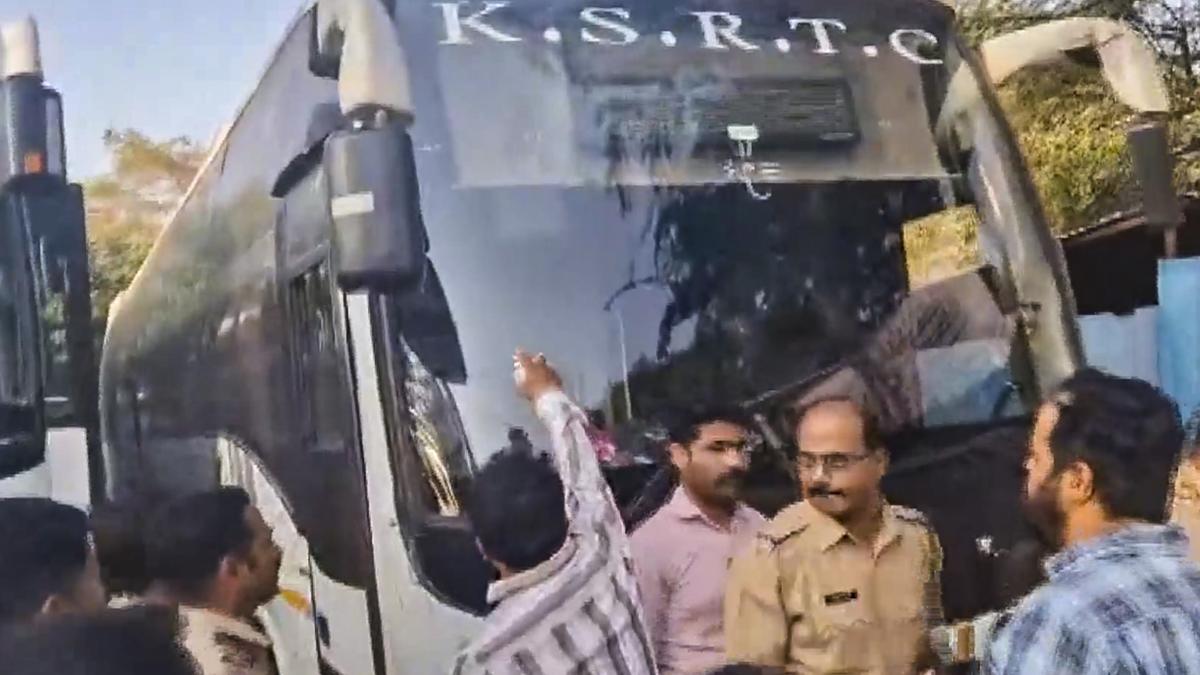
A Complex and Unresolved Issue
The recent assaults on bus conductors and drivers have further entrenched the Karnataka-Maharashtra border dispute, which has persisted for decades. Rooted in historical, linguistic, and political issues, the conflict has led to physical confrontations and heightened tensions between the two states. The legal battle, now pending in the Supreme Court, offers no clear resolution in the near future.
As both states continue to assert their claims, the people living in the disputed areas find themselves in the crossfire of a long-standing geopolitical conflict. Until a legal resolution is reached, this issue is likely to remain a significant source of discord, both politically and socially, between Karnataka and Maharashtra.
With inputs from agencies
Image Source: Multiple agencies
© Copyright 2024. All Rights Reserved Powered by Vygr Media.

